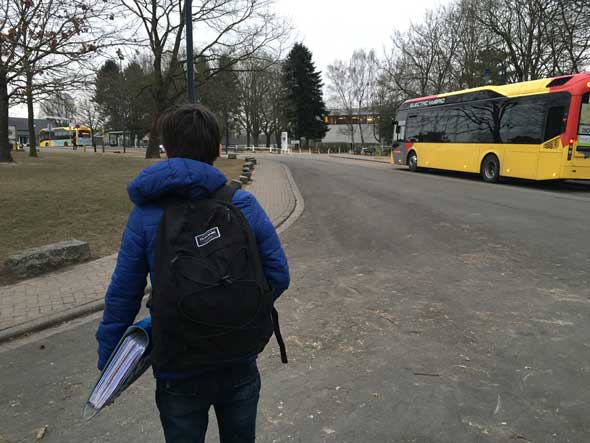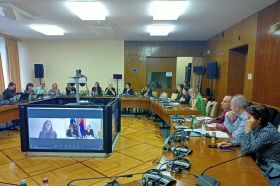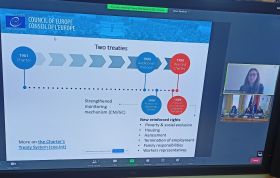Date of article: 10/10/2022
Daily News of: 10/10/2022
Country:  Spain
- Andalucía
Spain
- Andalucía
Author:
Article language: es
El Defensor del Pueblo andaluz, Jesús Maeztu, ha iniciado una queja de oficio para interesarse por la falta de convocatorias del Bono Joven al Alquiler y otros programas de ayuda a la vivienda para personas vulnerables en Andalucía.
En la actuación, el Defensor expone que a comienzos de este año se publicó el Real Decreto 42/2022, de 18 de enero, por el que se regula el Bono Alquiler Joven y el Plan Estatal para el acceso a la vivienda 2022-2025. El citado Plan Estatal contempla diversos programas de ayudas económicas que pretenden facilitar el derecho a la vivienda, en un momento marcado por la crisis económica originada por la pandemia del COVID-19, a la que unos meses después se ha añadido la inflación causada por la guerra en Ucrania. Sin embargo, el Defensor señala que, "iniciado el otoño, aún nos encontramos con que dos programas esenciales de ayudas económicas del referido Real Decreto aún se encuentran sin desarrollar en Andalucía".
En primer lugar, este comisionado parlamentario ha apuntado al Bono Alquiler Joven, medida a gestionar por las comunidades autónomas, siendo primero necesario que el Ministerio de Transportes, Movilidad y Agenda Urbana y las comunidades autónomas llegasen a un acuerdo al respecto y posteriormente que se regulasen los términos de la convocatoria. A comienzos de junio arrancó en Cataluña y, a lo largo del verano, todas las comunidades autónomas iniciaron la convocatoria, habiéndose concluido ya, además de en Cataluña, en Cantabria e Islas Baleares. "Andalucía es la única comunidad autónoma en la que aún no se han aprobado las bases reguladoras ni publicado la convocatoria del Bono Alquiler Joven", ha señalado el Defensor.
En segundo lugar, para la ejecución del Plan Estatal de Vivienda 2022-2025, era necesaria la firma del preceptivo convenio entre el Ministerio de Transportes, Movilidad y Agenda Urbana y Andalucía, que no se ha producido hasta el 16 de agosto, sin haber sido aún publicado en el BOE, con un compromiso financiero por parte del Ministerio de 246,7 millones de euros para los programas a los cuales se haya acogido nuestra comunidad. Estos programas están destinados al alquiler de vivienda; a la ayuda a las víctimas de violencia de género -al ser personas objeto de desahucio de su vivienda habitual-, personas sin hogar y otras personas especialmente vulnerables; a las personas arrendatarias en situación de vulnerabilidad sobrevenida; y a las personas jóvenes y para contribuir al reto demográfico.
Expone el Defensor que la Consejería andaluza de Fomento, Infraestructuras y Ordenación del Territorio ha aprobado la Orden de 10 de junio de 2022 por la que se aprueban las bases reguladoras para la concesión de ayudas de alquiler, en régimen de concurrencia no competitiva, a las víctimas de violencia de género, personas objeto de desahucio de su vivienda habitual, personas sin hogar y otras personas especialmente vulnerables. Sin embargo, aún no se ha procedido a la convocatoria de dichas ayudas, dándose la circunstancia de que han transcurrido dos años desde la última convocatoria de ayudas al alquiler a colectivos vulnerables.
"Del resto de programas citados se desconoce por el momento si han sido incluidos en el Convenio bilateral, si por tanto tienen financiación estatal y/o autonómica y si van a ser puestos en marcha a corto o medio plazo mediante la aprobación de las bases reguladoras y la formulación de las correspondientes convocatorias", ha aseverado el Defensor, para quien es responsabilidad de los poderes públicos cumplir con el mandato constitucional y estatutario de promover las condiciones y establecer las normas pertinentes para hacer efectivo el derecho a disfrutar de una vivienda digna y adecuada, adoptando todas las medidas que contempla nuestro ordenamiento para ello.
Por todo ello, el Defensor del Pueblo andaluz ha iniciado queja de oficio y ha solicitado a la Viceconsejería de Fomento, Articulación del Territorio y Vivienda la remisión de informes sobre las actuaciones que se estén realizando para la convocatoria de estas ayudas, "de las que la ciudadanía andaluza con mayores necesidades se encuentra a la espera", así como sobre la fecha aproximada en la que las mismas puedan estar vigentes.
 Germany
- Schleswig-Holstein
Germany
- Schleswig-Holstein







